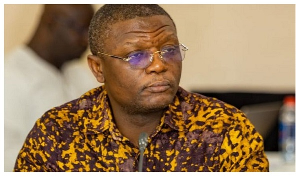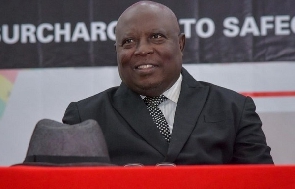Although government has reduced the number of sectors it funds with oil revenues, the money is still being spread thinly, the African Centre for Energy Policy (ACEP) has said, asking for an investment plan to guide spending.
“Education’s capital budget, for instance, has been spread over 64 different projects. And we are allocating so little of the money to these projects that it is not enough to complete them; and so what you get is that most of these projects will experience time overruns and as a result also have cost overruns, and so value for money is lost. And that does not amount to efficient spending of the oil money,” said Dr. Mohamed Amin Adam, ACEP’s Executive Director.
“In 2012, 16 MDAs were allocated the oil money, in 2013, 15 MDAs and so the issue of spreading the money too thinly was prominent. But government changed the path in 2014 and as we saw in the budget, the government decided to concentrate on a few projects. So, only six MDAs were allocated the oil money. But if you go to the specific projects even within the six MDAs, the money has been spread over so many projects,” he said.
In line with the Petroleum Revenue Management Law, the government decided it would in the 2014 budget spend the oil money on “four priority areas” -- Expenditure and Amortisation of Loans for Oil and Gas Infrastructure; Road and Other Infrastructure; Agricultural Modernisation; and Capacity Building (including Oil and Gas).
The total Annual Budget Funding Amount (ABFA) allocated to these priority areas was GH¢899million, and the education sector received a little over GH¢100million. The Agriculture, Fisheries and Aquaculture sectors received GH¢57million while roads, energy and other infrastructure projects received the rest.
Analysis done by ACEP on allocations to the education and agriculture sectors indicates that “efficiency of spending petroleum revenues remains a challenge as petroleum revenues are thinly distributed over many projects, most of which will take a much longer time to complete without regular financing”.
Although the proportion of petroleum revenues in the total budget is insignificant in nominal terms, government’s capital programme could suffer substantially without petroleum revenues,” the energy policy think-tank said.
While calling for an investment plan to guide spending, ACEP called on government to commit a substantial portion of the petroleum revenues to finance the proposed free Senior High School programme.
“This will ensure the development of an educated skilled workforce capable of transforming the economy in the long-term.”
General News of Saturday, 26 July 2014
Source: B&FT

















